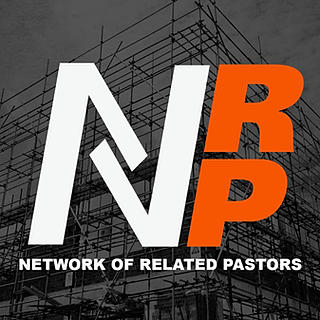Leadership in Context Episode 42 Show Notes
- NRP
- Jul 2, 2019
- 3 min read

Leadership in Context with Keith Tucci
Episode 042
Rules of Political Engagement
Cultural engagement. Political engagement. What is the role of the pastor in these scenarios? What should the guidelines be? What should we be doing? What should we notbe doing?
We do not lose our civil rights when we stand behind the pulpit.
The issue of free speech is sacred and critical to all our other liberties. If there is one place in the whole world where we should protect the liberty to speak what God has put on our mind, to speak the Word of God, it should be the pulpit. Once we surrender that, then it is a very slippery slope. We need to understand that we have a responsibility and a duty to make sure we do not allow the government or the fear of man to persuade us to be silent from the pulpit when we need to speak. We do not lose our civil rights when we become a minister and stand behind the pulpit. We have the liberty, the authority, the responsibility to speak about anything to anyone as long, as we believe it is related to the gospel. We should never allow ourselves to be gagged or constrained at all.
The Johnson Amendment
The Johnson Amendment has been interpreted to say that now they are not allowed to speak about political issues from the pulpit. What is political? Anything can be deemed political or non-political. When we don’t address something, that makes it political. We always need to speak in terms of biblical.
I can hardly think of a political issue that does not reflect upon biblical Truth. The Johnson Amendment, even when interpreted in the strictest way, does not prohibit a person from talking about things that are on their heart. If a pastor says, “I cannot speak about something because the law prohibits me,” whose servant have they become? This amendment does not prohibit me from speaking! It is unenforceable because it is unenforceable language. Who defines what “political” is? The only person defining “political” is the pastor or the leader who will notspeak on something that desperately needs to be spoken of or about.
From the Pulpit
Routinely, as a pastor, I told people whom I was voting for, what I was voting for, and why I was voting. I was careful to not be dogmatic about it. We can be painfully clear on some issues, like the issue of life. I challenged people that they should never vote for someone who did not support life. But it was not a litmus test to be a member of our church. I walked people through it. I tried to teach my way through it, rather than just make political declarations. Political declarations are where it gets fuzzy. Not from a legal standpoint, but from a leadership standpoint. When we make political statements and don’t slow down and explain why the issues are important to believers, important to the Lord—that gets fuzzy. We have a responsibility to educate our church so they can think right, believe right, live right, vote right; so they can be productive Christians and productive citizens.
Our responsibility as the church to be the pillar and support of the Truth.
1 Timothy 3:15 Just in case I am delayed, I write so that you will know how one ought to conduct himself in the household of God, which is the church of the living God, the pillar and support of the truth.
The Apostle Paul’s definition of conduct inside the Church of the Living God was the support of the Truth, the pillar of the Truth. We should be known for loving Jesus, loving one another, and loving unlovely people. That is a reflection of the Truth because that is what the Truth teaches us. We should be known for the Truth. If something is true, we should be addressing it. Our people should not have to rely on political commentary outside the church to know what is right and wrong. We should be able to look at issues, legislation, political activism that affects the Great Commission, the believer, the church, the next generation and speak with some authority and knowledge on those things.
What makes political speech political is when we don’t speak.
Join us next week as Keith Tucci continues to put leadership truth in the context of the local church. And as always, please like, share, rate/review, and invite others to listen. See you next week!







Comments